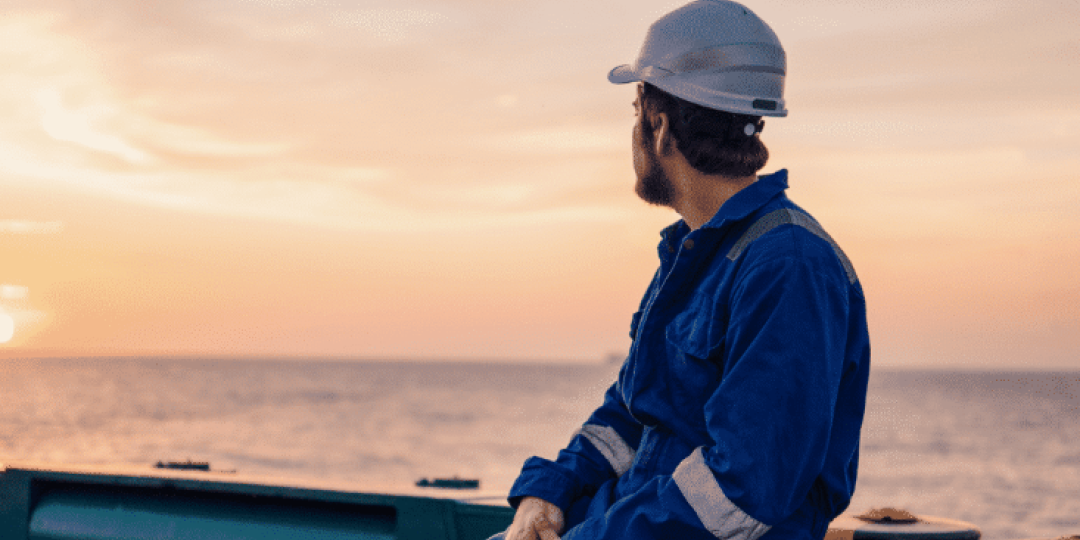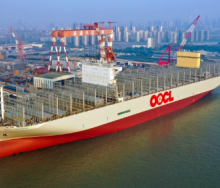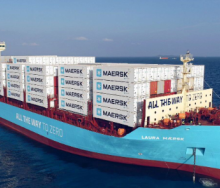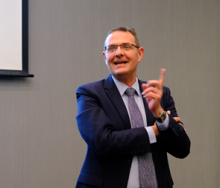Mariners are increasingly unhappy at work, as indicated by the latest Seafarers' Happiness Index (SHI) – findings that come at a time when the crew faces myriad challenges, including a lack of drinking water and insufficient food supplies at sea.
The latest SHI report for the second quarter of the year, published by the Mission to Seafarers charity drive, reveals a notable decline in overall happiness on board.
The survey, conducted by marine insurers North Standard, ship inspectors Idwal and supported by telecoms company Inmarsat, measures the well-being of seafarers worldwide through ten key questions about their work and life.
The latest report shows an overall fall in seafarer happiness from 7.1/10 to 6.77/10 compared to the previous quarter. Happiness levels declined across all question areas, with the most significant drops observed in general crew happiness, shore leave and workload, showing an approximate 8% decrease.
Average seafarer happiness levels have now declined from a high of 7.69/10 in the last year's fourth quarter (Q4) to 7.1/10 in Q1 2023, and now 6.77/10 in Q2.
In contrast to previous years, happiness levels have not risen over the course of the current year.
Seafarers expressed their struggles at not yet seeing working and living conditions fully return to pre-pandemic standards, particularly in areas such as crew changes, time spent on board, wages and shore leave.
Other key issues included unmanageable workloads, limited internet access and inadequate gym facilities.
The Covid-19 pandemic exposed serious challenges for seafarers, including crew change delays, extended time on board, and declining wages, leading to worsened working conditions.
Despite emerging from the pandemic, returning to normal conditions has been difficult, causing frustration.
A major concern was the shortage of available drinking water, a common problem highlighted by those responding to the survey, despite this being explicitly covered by the Maritime Labour Convention (MLC).
Rising global food prices have also impacted seafarers, with low company meal budgets and expense cuts leading to insufficient food supplies, sometimes for up to two to three weeks, the survey found.
Seafarers also face limited opportunities for shore leave due to ongoing restrictions and company policies, negatively affecting mental health, job satisfaction, and welfare, leading to boredom, frustration and low morale.
Some respondents have never experienced shore leave in their careers. Calls for standardised protocols and more shore leave opportunities persist. The lack of work-life balance and violations of work and rest hours are also common concerns, violating the MLC's provisions.
In addition, seafarers are concerned about their wages, with some reportedly being paid only once during their time on board, with subsequent periods considered “gaining experience” without payment, akin to modern slavery.
Andrew Wright, the secretary general of Mission to Seafarers, said the findings were disconcerting.
“It is extremely disappointing to read of contracts being altered or disregarded, leading to payment issues, salary cuts, rising taxes, and increased living costs, as well as such fundamental requirements as good quality meals, access to shore leave, and manageable workloads.”
He added: “All seafarers are fully entitled to expect fair compensation for their hard work, dedication, and commitment to keeping international shipping moving. It is incumbent upon all of us to address these issues and make the improvements required.”
Thom Herbert, senior marine surveyor and crew welfare advocate at Idwal, said the survey had uncovered “deeply concerning” issues.
“Struggles with working and living conditions, crew changes, time spent on board, wages, and shore leave are particularly disheartening,” he said.
“Issues like unmanageable workloads, limited internet access, and inadequate gym facilities exacerbate hardship, but we are particularly troubled to hear about a lack of available drinking water. All these findings underscore the urgent need for industry-wide efforts to improve the well-being of seafarers.”













